Want to know more about the Best Information Technology Schools In the US and make an informed decision? Here is a good place to start.
Are you struggling to find the perfect IT school for your future success? Fear not, as we’ve compiled a list of the best information technology schools to help you navigate the sea of options.
With our guide, you’ll discover top institutions that’ll set you on the path to a thriving tech career. Say goodbye to confusion and hello to clarity!
Please note that schools are selected based on our criteria (at the end of the article), ranked by the latest acceptance rate.
Table of Contents
#25. Iowa State University


- Acceptance rate: 89%
- Average entry score: 1010-1310 SAT or 21-28 ACT
- Student-to-faculty ratio: 19 to 1
- Estimated cost of attendance (tuition and fees): $21,940-$37,128
- Average earning potential for graduates: $68,900 (College Simply)
Iowa State University offers several information technology programs for students. These programs provide students with a strong foundation in computer programming,
software development, information technology project management, and other IT-related skills.
Additionally, students have access to cutting-edge technology and resources, including a cybersecurity lab and a virtual reality lab.
Iowa State University also offers opportunities for students to gain hands-on experience through internships and research projects.
Source: Iowa State University
#24. Drexel University
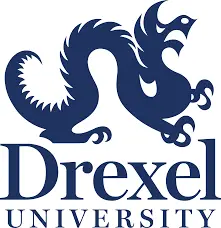

- Acceptance rate: 83%
- Average entry score: 1190-1390 SAT or 26-32 ACT
- Student-to-faculty ratio: 10 to 1
- Estimated cost of attendance (tuition and fees): $75,980
- Average earning potential for graduates: $86,400 (College Simply)
Drexel University leads in information technology education, with an emphasis on entrepreneurship and innovation.
Students enjoy a collaborative and supportive environment. This way, students can pursue their passions and gain a deeper understanding of the subject matter.
Information systems students can expect to graduate with a solid foundation in computer science, business, and management.
Source: Drexel University
#23. University of Pittsburgh


- Acceptance rate: 64%
- Average entry score: 1250-1470 SAT or 28-33 ACT
- Student-to-faculty ratio: 14 to 1
- Estimated cost of attendance (tuition and fees): $19,760-$36,000
- Average earning potential for graduates: $63,100 (College Simply)
The University of Pittsburgh offers several information technology programs that provide a strong foundation in theory and practical skills.
Students can choose from undergraduate and graduate programs in areas such as computer science, information science, and computer engineering. The learning environment is supported by state-of-the-art facilities, experienced faculty, and opportunities for research and internships.
Students also benefit from the university’s partnerships with industry leaders, which provide access to cutting-edge technology and career opportunities.
Source: University of Pittsburgh
#22. University of California Santa Cruz
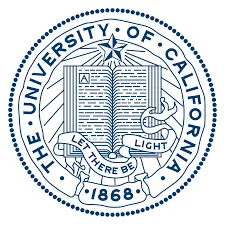

- Acceptance rate: 59%
- Average entry score: 1400 SAT or 31 ACT
- Student-to-faculty ratio: 23 to 1
- Estimated cost of attendance (tuition and fees): $14,070-$43,824
- Average earning potential for graduates: $52,000 (College Simply)
The information technology programs at the University of California Santa Cruz (UCSC) stand out for their emphasis on interdisciplinary studies and experiential learning.
Students have the opportunity to work on real-world projects, internships, and research alongside faculty who are leaders in the field.
Additionally, UCSC’s programs are known for their focus on social and ethical issues in technology, as well as their commitment to sustainability and community engagement.
Graduates emerge with a well-rounded education and a deep understanding of the impact of technology on society.
Source: UC Santa Cruz
Similar articles like this:
- 25 Best Schools For Soil Sciences In The US
- 25 Best Art History Schools In The US
- 25 Best Schools For Aerospace Engineering In The US
#21. University of Washington Seattle
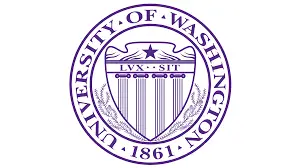

- Acceptance rate: 53%
- Average entry score: 1220-1470 SAT or 29-34 ACT
- Student-to-faculty ratio: 9 to 1
- Estimated cost of attendance (tuition and fees): $30,640-$58,470
- Average earning potential for graduates: $90,300 (College Simply)
University of Washington IT graduates excel in job prospects due to a rigorous curriculum, cutting-edge technology exposure, and strong industry connections.
Their diverse skill set spans programming, cybersecurity, data analytics, and AI, making them highly adaptable.
UW’s strategic location in Seattle, a tech hub, offers ample networking opportunities, internships, and collaborations with top companies, fostering competitive, innovative, and market-ready professionals.
Source: University of Washington Seattle
#20. Brandeis University


- Acceptance rate: 39%
- Average entry score: 1370-1530 SAT or 31-34 ACT
- Student-to-faculty ratio: 10 to 1
- Estimated cost of attendance (tuition and fees): $76,195
- Average earning potential for graduates: $70,400 (College Simply)
Brandeis University excels in IT-related programs due to its cutting-edge curriculum, industry partnerships, and distinguished faculty.
The information technology program emphasizes experiential learning, real-world projects, and interdisciplinary collaboration, equipping students with in-demand skills.
Renowned research centers and state-of-the-art facilities further enhance the learning experience, while the strong alumni network connects graduates to top-tier opportunities in tech.
Source: Brandeis University
What’s it like to study at Brandeis University?
#19. Florida State University
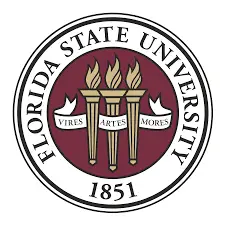

- Acceptance rate: 37%
- Average entry score: 990 SAT or 19 ACT
- Student-to-faculty ratio: 22 to 1
- Estimated cost of attendance (tuition and fees): $24,337-$39,503
- Average earning potential for graduates: $57,200 (College Simply)
Florida State University offers a range of information technology programs to students looking to enter the workforce or advance in their current careers.
The programs focus on areas such as networking, database management, cybersecurity, and software development. Students have access to state-of-the-art facilities and resources, including research centers and specialized labs.
Graduates are well-equipped to pursue careers in various IT fields, including software engineering, network administration, and cybersecurity.
Source: FSU iSchool
#18. University of California San Diego
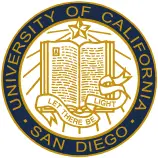

- Acceptance rate: 34%
- Average entry score: 1270-1480 SAT or 28-34 ACT
- Student-to-faculty ratio: 12 to 1
- Estimated cost of attendance (tuition and fees): $36,061-$65,835
- Average earning potential for graduates: $80,800 (College Simply)
The information technology programs at UC San Diego are some of the best in the world due to their cutting-edge curriculum, top-notch faculty, and innovative research initiatives.
Students have access to state-of-the-art facilities and resources and can choose from a wide range of specializations within the IT field.
The program emphasizes hands-on learning and practical experience, preparing graduates to excel in the rapidly-evolving IT industry.
Source: UC San Diego
Similar articles like this:
- 25 Best Schools For Business Management Studies In The US
- 25 Best Schools For Programming In The US
- 25 Best Commerce Schools In The US
#17. University of Texas at Austin
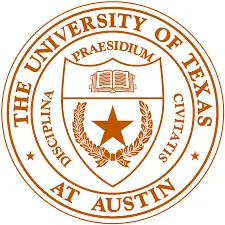

- Acceptance rate: 32%
- Average entry score: 1230-1500 SAT or 29-34 ACT
- Student-to-faculty ratio: 16 to 1
- Estimated cost of attendance (tuition and fees): $28,928-$57,512
- Average earning potential for graduates: $70,000 (College Simply)
At the University of Texas at Austin, various IT programs are available, covering disciplines like computer science, information studies, and electrical and computer engineering at both undergraduate and graduate levels.
The institution also provides interdisciplinary offerings, including computational science, innovation management in technology, and human-computer interaction.
Students benefit from state-of-the-art research amenities and the chance to collaborate with distinguished professors in fields such as cybersecurity, data analysis, and software development.
Source: University of Texas at Austin
#16. University of Richmond
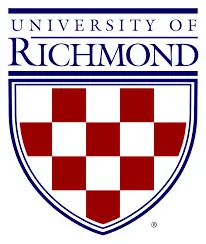
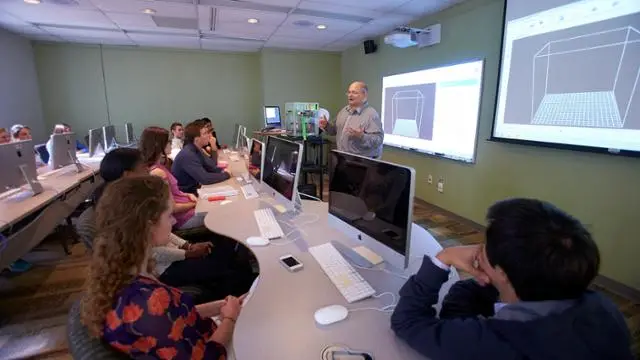
- Acceptance rate: 31%
- Average entry score: 1310-1490 SAT or 31-34 ACT
- Student-to-faculty ratio: 8 to 1
- Estimated cost of attendance (tuition and fees): $74,590
- Average earning potential for graduates: $74,100 (College Simply)
The University of Richmond provides information technology students with unrivaled opportunities to gain real-world experience.
Their students have been immersed in a culture of innovation, creativity, and entrepreneurship from day one.
As a result, their graduates are sought-after by top companies because they have the skills and experience to hit the ground running.
Source: University of Richmond
What’s it like to study at the University of Richmond?
#15. University of Miami
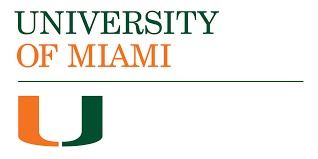

- Acceptance rate: 29%
- Average entry score: 1320 SAT or 30 ACT
- Student-to-faculty ratio: 13 to 1
- Estimated cost of attendance (tuition and fees): $75,230
- Average earning potential for graduates: $65,000 (College Simply)
The University of Miami offers a range of information technology programs that emphasize practical skills and real-world experience.
Students also have the opportunity to network with industry professionals and gain valuable experience through internships and other hands-on learning opportunities.
The end product of these programs is a highly skilled and knowledgeable workforce that is able to solve complex problems, develop innovative solutions, and adapt to the ever-changing technology landscape.
Source: University of Miami
What’s it like to study at the University of Miami?
#14. Purdue University
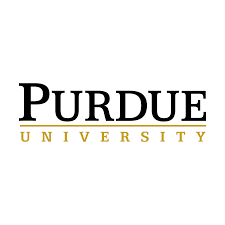

- Acceptance rate: 25%
- Average entry score: 1267 SAT
- Student-to-faculty ratio: 14 to 1
- Estimated cost of attendance (tuition and fees): $24,390-$50,000
- Average earning potential for graduates: $71,600 (College Simply)
Purdue University’s IT programs cover diverse areas of technology, from computer science and information systems to software engineering and cybersecurity.
Course offerings range from bachelor’s to doctoral degrees, providing students with theoretical knowledge and hands-on experience.
Collaborative learning, cutting-edge research, and industry partnerships ensure graduates are equipped to excel in the ever-evolving tech landscape. Purdue’s reputation for excellence attracts top talent and fosters a thriving alumni network.
Source: Purdue University
Similar articles like this:
#13. Boston University
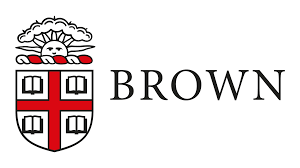

- Acceptance rate: 20%
- Average entry score: 1310-1500 SAT
- Student-to-faculty ratio: 11 to 1
- Estimated cost of attendance (tuition and fees): $79,606
- Average earning potential for graduates: $87,300 (College Simply)
Boston University’s IT programs are so popular that students flock there for its prestigious reputation, cutting-edge curriculum, and strong industry connections.
The university’s emphasis on practical, hands-on learning equips students with the necessary skills to excel in the ever-evolving tech landscape.
Additionally, BU’s accomplished faculty, extensive resources, and vibrant student community create a supportive, stimulating environment that fosters innovation and encourages collaboration.
Source: BU MET
#12. University of Virginia


- Acceptance rate: 20%
- Average entry score: 1320-1510 SAT or 30-34 ACT
- Student-to-faculty ratio: 15 to 1
- Estimated cost of attendance (tuition and fees): $36,840-$70,808
- Average earning potential for graduates: $85,800 (College Simply)
At the University of Virginia, information technology students are taught how to manage and maintain their own networks. They also learn how to design, build, secure, manage, and troubleshoot those networks.
The faculty is always available to assist students with questions, and they work hard to ensure that their students succeed.
As students graduate with this program, they are able to apply for jobs in a variety of positions. They may end up working as network engineers, system administrators, or even IT consultants.
Source: UVA
#11. Georgia Institute of Technology
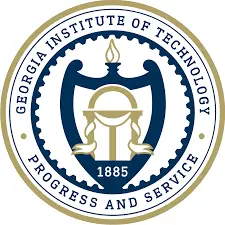

- Acceptance rate: 16%
- Average entry score: 1390 SAT
- Student-to-faculty ratio: 21 to 1
- Estimated cost of attendance (tuition and fees): $31,898-$53,010
- Average earning potential for graduates: $78,800 (College Simply)
Are you ready to become an IT superstar? Look no further than Georgia Tech’s information technology courses. This program is the real deal, providing top-of-the-line education that blends cutting-edge theory and practical skills.
With instructors who are the cream of the crop, you’ll learn the ins and outs of the tech industry and advanced topics that will blow your mind.
Sure, the curriculum is rigorous, but the hands-on experience you’ll gain will set you apart from the rest. With an IT degree from Georgia Tech, you’ll be ready to take on the tech world by storm.
Source: Georgia Tech.
What’s it like to study at Georgia Institute of Technology?
#10. Washington University in St Louis


- Acceptance rate: 16%
- Average entry score: 1490-1570 SAT or 33-35 ACT
- Student-to-faculty ratio: 7 to 1
- Estimated cost of attendance (tuition and fees): $79,060
- Average earning potential for graduates: $96,200 (College Simply)
Washington University in St Louis’s information technology degree programs combine strong technical skills with an interdisciplinary approach.
Students enjoy an intimate learning environment, where they can explore the intersection of technology and society. The university’s IT program is designed to combine the latest technical skills with a strong understanding of how these tools are used in real-world settings.
Graduates benefit from a strong reputation in the tech industry, as well as access to a network of alumni and industry contacts.
Source: WashU IT
Similar articles like this:
- Best Schools For Geography Degrees
- 25 Best Business Administration Schools In The US
- Best Schools For Forensic Science
#9. University of Southern California
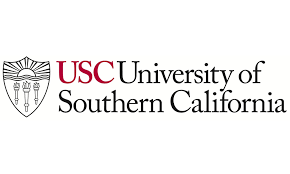
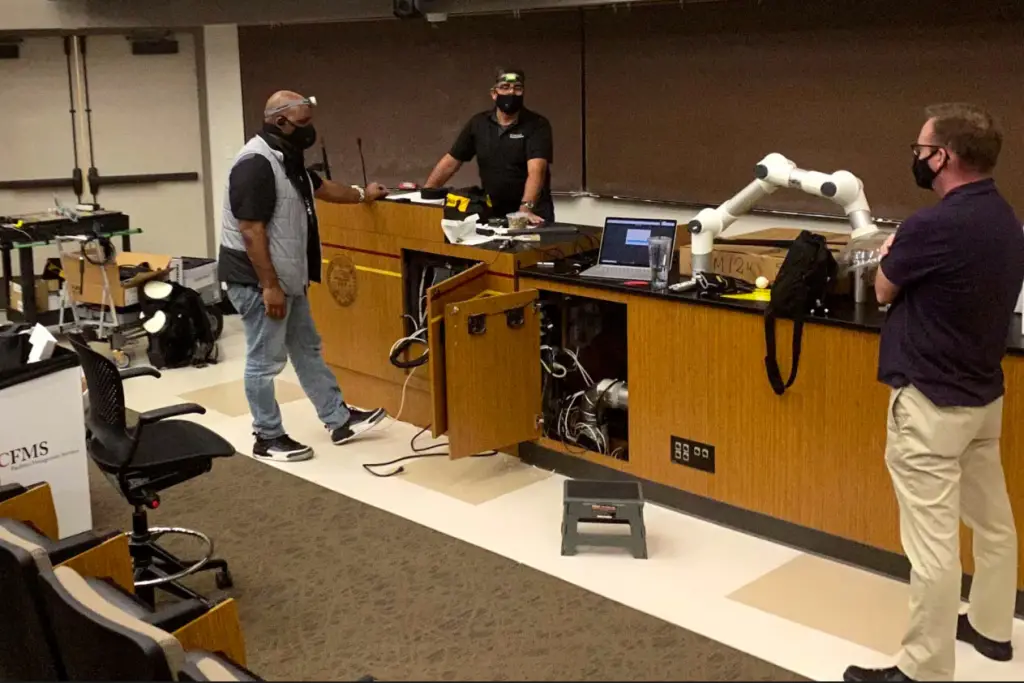
- Acceptance rate: 16%
- Average entry score: 1340-1530 SAT or 30-34 ACT
- Student-to-faculty ratio: 9 to 1
- Estimated cost of attendance (tuition and fees): $81,659
- Average earning potential for graduates: $108,200 (College Simply)
USC’s information technology degree program, renowned for cutting-edge education, offer students access to top-tier faculty and industry connections.
Graduates excel in lucrative careers, such as software engineering, cybersecurity, and data analytics, at leading tech firms like Google and Apple.
With a strong alumni network and dedicated career services, USC ensures IT students thrive in a competitive job market.
Source: USC Catalog
#8. Carnegie Mellon University
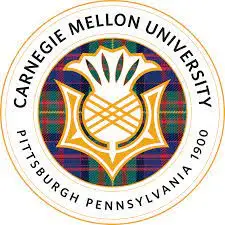

- Acceptance rate: 14%
- Average entry score: 1480-1560 SAT or 33-35 ACT
- Student-to-faculty ratio: 6 to 1
- Estimated cost of attendance (tuition and fees): $77,474
- Average earning potential for graduates: $89,900 (College Simply)
Carnegie Mellon University offers a range of IT programs that prepare students for careers in various fields. The programs cover topics such as computer science, software engineering, human-computer interaction, and information security.
Students learn through a combination of classroom instruction, hands-on projects, and real-world experiences through internships and research opportunities.
Graduates from these programs are highly sought after by top companies in the tech industry. Most of them go on to make significant contributions in their fields.
Source: Carnegie Mellon University
#7. New York University
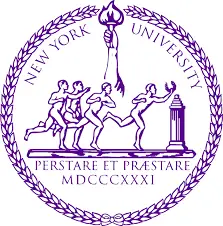

- Acceptance rate: 13%
- Average entry score: 1450-1570 SAT or 32-35 ACT
- Student-to-faculty ratio: 8 to 1
- Estimated cost of attendance (tuition and fees): $80,878
- Average earning potential for graduates: $111,900 (College Simply)
New York University IT students are highly sought after due to their rigorous education, exposure to cutting-edge technologies, and networking opportunities in NYC’s thriving tech scene.
The university’s strong industry partnerships and practical learning opportunities equip them with in-demand skills. This makes them ideal candidates for top tech companies seeking innovative, adaptable, and well-rounded professionals.
Source: New York University
#6. Georgetown University


- Acceptance rate: 12%
- Average entry score: 1370 SAT or 29 ACT
- Student-to-faculty ratio: 11 to 1
- Estimated cost of attendance (tuition and fees): $82,505
- Average earning potential for graduates: $108,900 (College Simply)
Georgetown University’s information technology programs boast a reputation for providing students with a high-quality education that prepares them for careers in the field.
Students can expect their education at Georgetown to be rigorous, but they also have plenty of opportunities for fun as well.
From intramural sports leagues to student clubs, there are plenty of ways for students to get involved in campus life.
Source: Georgetown University
Similar articles like this:
- 25 Best Schools For Insurance Degrees In The US
- Best Schools For International Relations
- 25 Best Digital Marketing Schools In The US
#5. Northeastern University
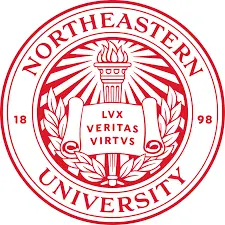

- Acceptance rate: 11%
- Average entry score: 1430-1550 SAT or 33-35 ACT
- Student-to-faculty ratio: 15 to 1
- Estimated cost of attendance (tuition and fees): $78,202
- Average earning potential for graduates: $85,800 (College Simply)
Northeastern University’s information technology students enjoy mentoring and support from faculty members and industry experts.
This institution offers a unique blend of academic rigor and practical experience that prepares students to enter the workforce after graduation.
The university’s small class sizes allow students to receive personalized attention from faculty members who are committed to helping them succeed.
Students can also opt for online courses, which are convenient for those who want to pursue their degree while maintaining a busy work schedule.
Source: Northeastern University
What’s it like to study at Northeastern University?
#4. Cornell University
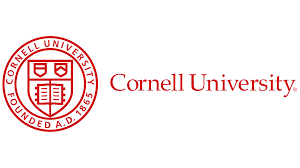

- Acceptance rate: 11%
- Average entry score: 1450-1560 SAT or 33-35 ACT
- Student-to-faculty ratio: 9 to 1
- Estimated cost of attendance (tuition and fees): $78,992
- Average earning potential for graduates: $79,600 (College Simply)
Cornell University’s cutting-edge IT programs equip students with advanced technical expertise, enhancing their problem-solving abilities.
Graduates emerge as innovative leaders, driving developments in AI, cybersecurity, and data science sectors.
With strong industry connections and robust research opportunities, Cornell alumni contribute to shaping the future of technology, distinguishing themselves in renowned companies and groundbreaking startups worldwide.
Source: Cornell University
#3. Johns Hopkins University
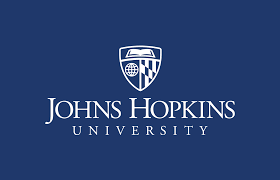
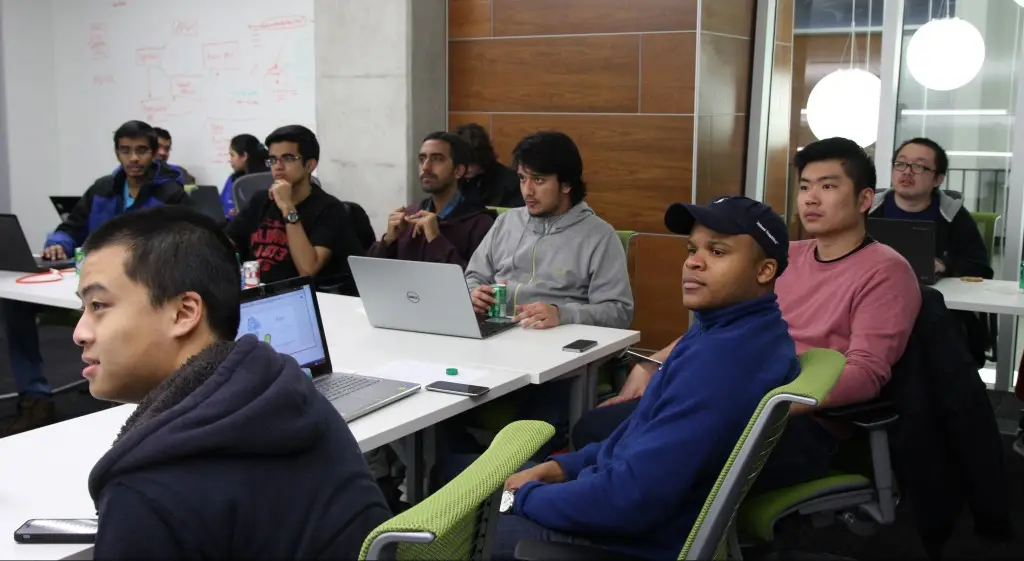
- Acceptance rate: 8%
- Average entry score: 1510-1570 SAT or 34-35 ACT
- Student-to-faculty ratio: 7 to 1
- Estimated cost of attendance (tuition and fees): $78,657
- Average earning potential for graduates: $92,700 (College Simply)
Johns Hopkins University offers information technology programs that provide an innovative and collaborative learning environment. The faculty is composed of industry experts who are passionate about teaching and helping students achieve their goals.
Students work on hands-on projects and have access to cutting-edge technology resources to stay ahead of the curve.
Additionally, the university offers a range of networking opportunities, including career fairs and industry events, to help students connect with potential employers and gain valuable industry insights.
Source: Johns Hopkins University
#2. Columbia University
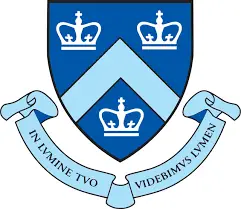

- Acceptance rate: 4.1 %
- Average entry score: 1440-1570 SAT or 34-35 ACT
- Student-to-faculty ratio: 6 to 1
- Estimated cost of attendance (tuition and fees): $85,000
- Average earning potential for graduates: $97,700 (College Simply)
Columbia University’s IT programs excel in innovation and prestige, offering cutting-edge curricula, expert faculty, and robust research opportunities.
Students gain practical, hands-on experience and join a global alumni network.
The institution’s New York City location fosters unparalleled partnerships with tech giants, positioning graduates for success in the rapidly evolving world of technology.
Source: Columbia University
What’s it like to study at Columbia University?
#1. Massachusetts Institute of Technology
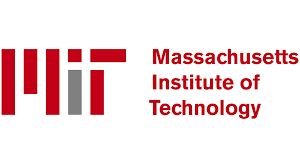

- Acceptance rate: 4%
- Average entry score: 1570 SAT or 36 ACT
- Student-to-faculty ratio: 3 to 1
- Estimated cost of attendance (tuition and fees): $77,570
- Average earning potential for graduates: $118,100 (College Simply)
MIT’s Ph.D. program in Information Technology emphasizes cutting-edge research, interdisciplinary collaboration, and real-world application.
Students work with renowned faculty, access state-of-the-art facilities, and contribute to groundbreaking discoveries. Graduates emerge as thought leaders, equipped to shape the future of IT through academic, industry, or entrepreneurial ventures.
Rigorous coursework and hands-on experience prepare them for careers in data science, cybersecurity, AI, and more.
Source: MIT Management Sloan School
Conclusion
As we have described above, there is no shortage of schools that offer strong IT programs. However, not all of these programs are created equal.
Some IT schools are better than others at preparing students for a career in IT.
We urge you to do your research before making a decision. Look at the school’s curriculum, faculty, and alumni base. Also consider factors such as location, class size, and cost.
Selection Criteria
Here is a list of the factors we considered when selecting the best Information Technology schools:
Please note that the order in this list might vary by ranking criteria and sources.
- Reputation and ranking of the school: We looked for schools that have a strong reputation and high ranking in the field of Information Technology.
- Faculty expertise, qualifications, and specialization: We researched the faculty members and their areas of expertise and qualifications to ensure that the school has professors with relevant expertise and specialization in the areas of Information Technology that are of interest.
- Curriculum and resources: We evaluated the curriculum to ensure it aligns with students’ interests and career goals and considered the quality of the school’s facilities and resources, such as labs, equipment, and libraries.
- Opportunities for hands-on learning and research: We looked for schools that provide opportunities for hands-on experience through internships, co-op programs, or fieldwork.
- Student support services and alumni network: We considered the availability of support services and the strength of the alumni network in providing mentorship, internships, and job opportunities after graduation.
- Extracurricular activities and diversity: We evaluated the availability of extracurricular activities and clubs that align with students’ interests and considered the school’s diversity and inclusivity.
- Networking and post-graduation support: We researched the school’s network of alumni and their post-graduation support for IT students and also considered if the schools have a strong network of industry professionals and researchers in information technology.
Frequently Asked Questions
Q1. How do I choose the right Information Technology school?
There are many factors to consider when choosing an IT school. The first thing you need to do is figure out what your goals are:
Do you want a degree or certification? Is it something you’d like to pursue full-time or part-time? What kind of career do you see yourself in after graduation?
These questions will help narrow your options and make the decision much easier.
Q2. What are the best IT schools in the US?
The best IT schools in the US can be found at some of the most reputable institutions of higher learning.
These top-rated computer science programs are recognized for their high academic standards and focus on innovation.
Top IT Schools in the US:
- Carnegie Mellon University (CMU)
- Massachusetts Institute of Technology
- New York University
Q3. What are the entry requirements for IT schools in the US?
The prerequisites for top computer science programs in the US vary from school to school, but most of them require applicants to have a strong background in math and science.
Q4. What are the career opportunities after graduating from IT schools in the US?
Top companies seek graduates of top computer science programs in the US. As a result, they have an array of job opportunities available to them upon graduation.
Some of the most popular careers include: Data scientist, Software engineer, and Network administrator.
Q5. Is there a difference between computer science, information technology, and computer engineering?
Yes, there is a difference between computer science, information technology, and computer engineering.
Computer science is the study of how computers work, while information technology refers to the application of computers in a business environment. Computer engineers are people who design and build computers.
References
[1] Official Websites
[2] Salary Data from Glassdoor, Grad Reports, College Factual, College Simply, Zippia
[3] Ranking references, including news media such as 2023 Best Colleges for Information Technology in America


